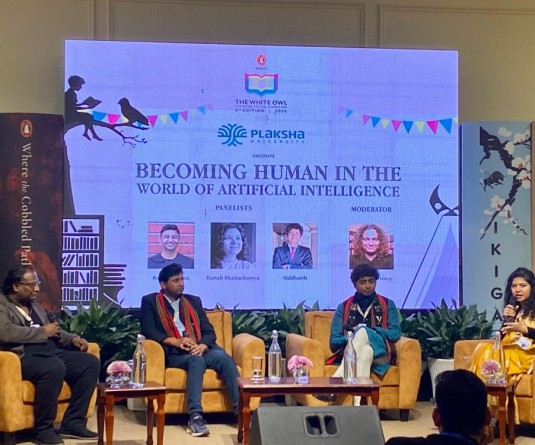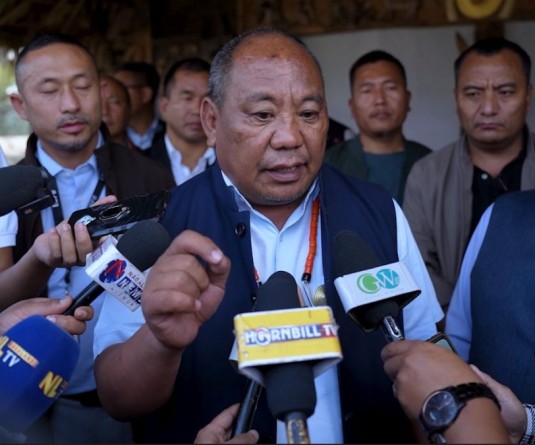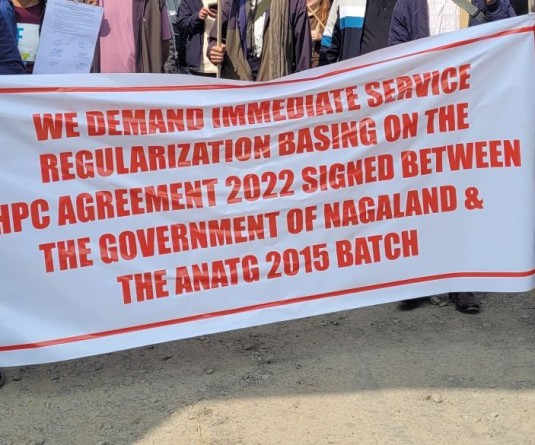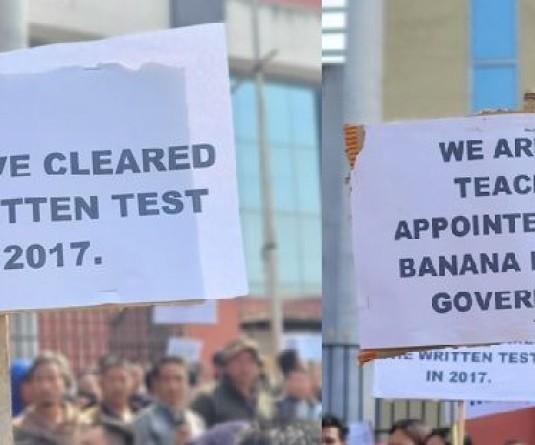Training on rice fortification conducted at IDSP Conference Hall, Directorate of Health & Family Welfare, Kohima on July 6. (DIPR Photo)
Designated Officer and Food Safety Officers trained on concept of rice fortification
Kohima, July 6 (MExN): Training on rice fortification was conducted for Food Safety Officers and Government officials under the theme, ‘Rice fortification for better nutrition outcomes’ at IDSP Conference Hall, Directorate of Health & Family Welfare, Kohima on July 6.
It was organized by the Centre for Health Research and Innovation (CHRI) and National Stock Exchange Foundation (NSEF) in collaboration with Food Safety Authority, Directorate of Health & Family Welfare (DoHFW), Kohima.
According to a DIPR report, the training was organised with the objective to provide an opportunity for training on safety measures and regulation of fortified rice, sensitize the Designated Officer and Food Safety Officers on the concept of rice fortification, address the myths around fortification to enhance the acceptability of fortified rice, agree on a way forward for partnering in creating mass awareness on rice fortification by leveraging the existing systems and platforms at the district level and develop a comprehensive sustainable time-bound action plan for the same.
DoHFW, Principal Director, Dr K Vikato Kinimi who was the special guest said, “all kinds of diseases are caused by bad food.” Therefore, the department has stood firmly for food safety measures in the State by checking shops, eateries and food storehouses so that they fall under the guidelines of the food safety measures, even banning the sale of fish in the state for few months due to the presences of chloroform.
The resource persons, Lead, Nutrition Family Health CHRI/PATH, New Delhi, Rohini Saran spoke on ‘concept and need of rice fortification’; State Technical Officer, CHRI, Shan Ezung explained about ‘enabling environment and concept of rice fortification’ and Project Lead, Centre for Health Research & Innovative (CHRI), New Delhi highlighted on ‘quality control and assurance of fortified rice and consumer awareness.’
They highlighted that Anemia and micronutrient deficiencies in India are recognized as a deterrent to maternal and child survival and overall productivity of the nation and contribute to high maternal and neonatal mortality and morbidity, obstetrical risks, impairment of fetal development, and low birth weight.
The resource persons also highlighted that the recent data as per National Family Health Survey-5 (2019-2020) shows that in Nagaland, anemia affects 34% of women in the reproductive age group (15-49 years), 10% of men, and approx.
43% of children under five years of age in the state and that anemia and micronutrient malnutrition can be addressed through improving dietary intakes by diversification of diets combined with nutrition education; food fortification; supplementation; and public health and other disease control measures.
They explained that fortification is the most effective strategy to combat the problem of micronutrient deficiencies in the population. Wheat, rice, milk, oil, and double fortified salt are the various vehicles for which fortification standards have been released by the Food Safety and Standards Authority of India in 2016.
Role of the Food Safety Authority (FSA) DoHFW includes the development of science-based food standards for articles of food and food products and to regulate their manufacture, storage, distribution, sale, and import to ensure the availability of safe and wholesome food for human consumption. Government of India and the vision of Prime Minister Narendra Modi to introduce fortified rice in all food safety nets in India by 2024, was also highlighted.
Earlier, welcome address was delivered by State Program Officer Food Safety DoHFW, Dr John Kemp while the closing remark was pronounced by Designated Officer, (Food Safety) Kohima Zone, Peterson Pongener.






